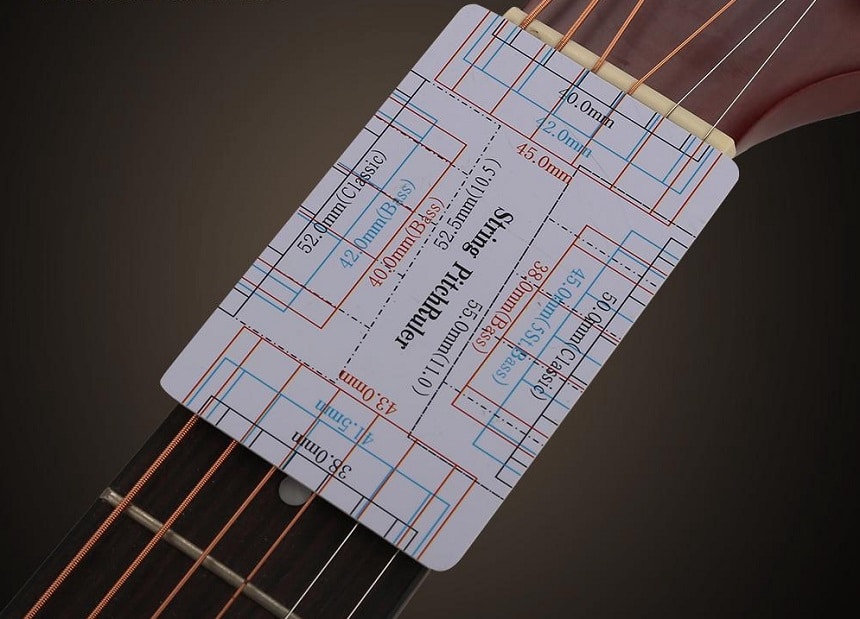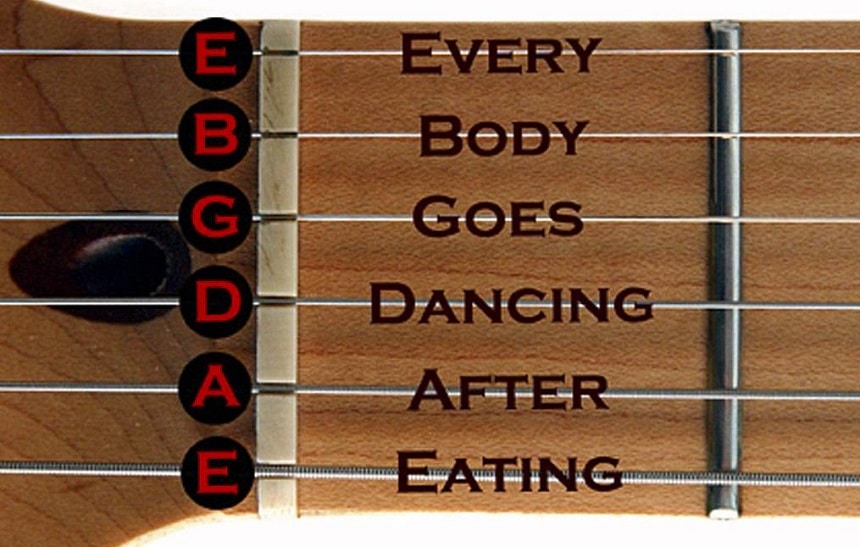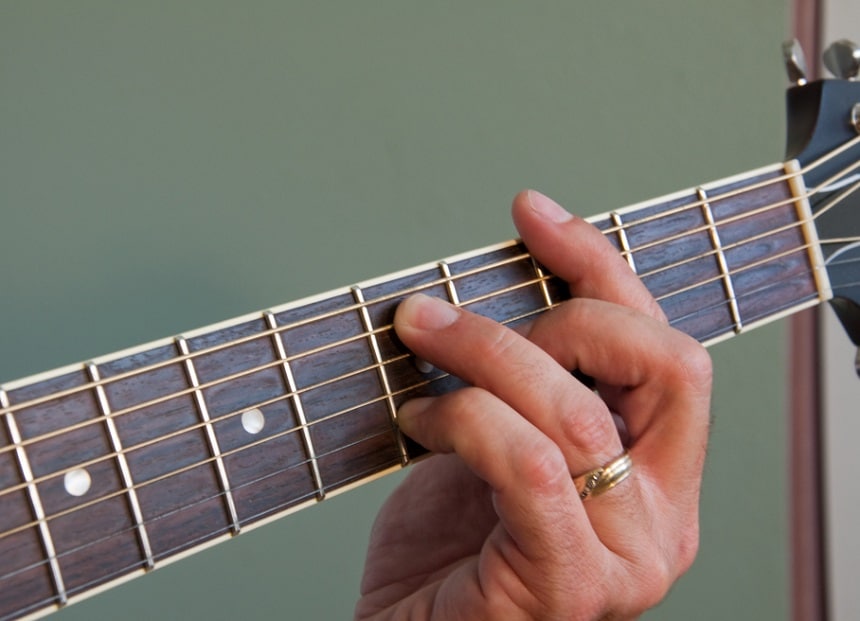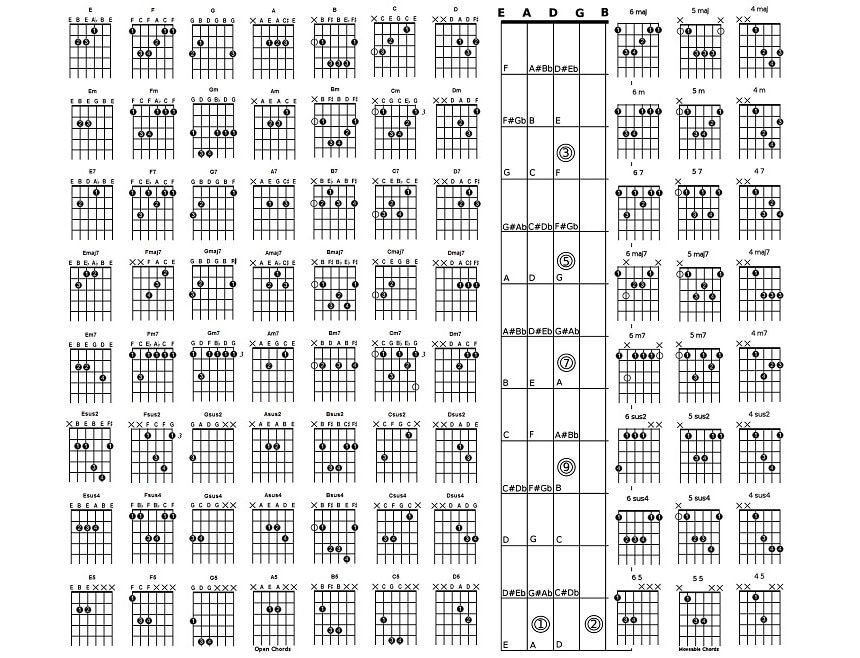There’s just something magical about picking up your first guitar and strumming it. From that moment, you feel motivated to learn everything as fast as possible. You even envision yourself on a stage or wowing your friends and family in a matter of weeks. You need to take things slowly and focus on getting it right from the start. Playing the guitar as a beginner, however, has got so many challenges and without a few tricks and hacks you might give up your dream too soon.
To become a great guitar player, you need to have a certain mindset then apply all the basic requirements for playing guitar well. Learning how to play with good technique from the start makes a whole difference. You will be able to showcase your prowess with effortless ease. Here are 17 tips for beginner guitar players that will help you master how to play with good technique.
As a guitar novice, it is highly likely that you didn’t dig too deep into your pockets for your first guitar, probably because you are not sure if the guitar will be the instrument for you. Cheaper guitars have their own drawbacks. They come with some issues that might make it difficult for you to play.
Cheap guitars tend to have a higher action. Action is the distance between the fretboard and the strings. If the action is high then the strings are far from the fretboard and this means you would have to use more effort to press them when forming chords or laying notes.
This together with the pain from the strings during the first moments of laying can make you quit even before you discover the real joys of playing the guitar.
Luckily, you can avoid all this by getting your guitar setup at your local music shop. It is incredibly affordable and while you’re there, mention that you are a beginner so that they can make the guitar much easier to play. They might even take you through the entire process which will be helpful in the future in case you need to make adjustments.

Guitars come with different gauges or thicknesses for different sounds. As a beginner, it is advisable to choose a guitar with a forgiving gauge of strings for the sake of your fingers and frustration levels.
Thick gauges of strings can be a bit harsh on the fingers and this can make a huge impact on the first few weeks of learning. Most people quit at this point because they find it too uncomfortable.
Your brand new guitar will come already setup with a certain gauge of strings. Changing the strings will force you to change the guitar’s setup. The best thing to do is to get the gauge of strings changed when you take your guitar for professional set up.
The best recommended gauge of strings for a beginner are the custom lights. They are more forgiving and kinder to the fingers. Most new guitars come with regular lights gauge of strings which are a gauge up from custom lights.
The D’Addario EJ15-3D Phosphor Bronze Acoustic Guitar String is one of the most acclaimed custom lights guitar strings brand. The guitar string set of 3 are a top choice of professionals worldwide. They offer warm, bright, consistent, long lasting and balanced acoustic tones thanks to their precision wound corrosion resistant wires.

As a beginner, it is unlikely that you know how to tune your guitar or even notice when it is out of tune. Learning how to play on an out-of-tune guitar will do you more harm than good. One unpopular fact is that everytime you play something, your brain will always try to remember it and learn to have a do over. This is exactly what happens when you play with a correctly tuned guitar.
Your brain will remember the pitch of the notes on a fine tuned guitar such that when you play an out of tune guitar you will notice that your notes are out of your tune and correct it. When you start learning with an out of tune guitar you will never recognize the right pitches.
Practicing on an out of tune guitar will also make you realize that you don’t sound as good when you hear someone playing on a tuned guitar and that might demoralize you.
The bottom line is, always ensure your guitar is tunes before you start practicing. You can check out a few guides on how to tune a guitar then buy a tuner or use an online tuner. If you aren’t sure on the type of tuner to get, try the popular TC Electronic PolyTune Clip. It employs the Polutune technology that allows you to tune all 6 strings simultaneously. It comes in a super-durable yet elegant design with an ultra-bright and easy to read display.
In the first few weeks of learning how to play the guitar you will realize that the strings dig deep into your fingers, causing you discomfort and pain which can be a bit off-putting. Sadly, this is partly unavoidable but there are things you can do to make the situation bearable.
First off, place each finger behind the fret for the chord or note you want to play. Strum the chord or pluck the note then let the sound ring true. Slowly release the pressure of your fingers on the string while still plucking or strumming.
Another way of avoiding the death grip is by hooking your thumb on top of the fret board to get leverage. This will force you to press the strings with the flat pad of your fingers rather than the tips. Using your fingertips will be super uncomfortable and your wrist will get tired pretty fast.
With chords, you have to synchronize multiple fingers simultaneously and this can be a tad difficult for a beginner. With scales, you only have to start with one finger at a time. When you advance to practicing chords, your brain will be familiar with the specific positions because scales are like fragmented chords.
You can start with a minor pentatonic scale. This is especially important if you are learning how to play rock. It will allow you to execute rock solos much faster.
Playing the guitar is a 2-handed affair. You might forget your right-hand technique in the effort to perfect your left-hand fingers. Once in a while, mute the strings with your left-hand and practice creating a rhythm with your right-hand strumming.
You can make use of apps with the strummer trainer feature like Uberchord Trusted Source Learn Guitar. Fast. The Uberchord App — Chords, Strumming, Songs. Uberchord is an interactive guitar teacher. Listens and adapts to personal progress, teaching you chords, rhythm, strumming and songs. Learn guitar! www.uberchord.com to help improve your timings and rhythm. Alternatively, you can choose an easy chord and focus on the finger-picking style that you are learning with your right hand.
The right songs are the songs that you love and will give you easy wins as a beginner. The songs you love will make learning guitar enjoyable despite the few challenges. Just ensure that the songs are within your level of skills. You don’t to choose a song that will give you a frustrating experience.
You can check out guitar songs online to find the most appropriate song for your skill level. You might find them boring but it would be a great way of developing your technique.
As strange as it sounds, playing too fast is a bad habit. It’s common for guitar beginners to pick up the guitar and expect to be as good as a pop star in a week. Speed should not be your goal when you just start because it comes with lots of practice.
Once your fingers get acclimatized and you can make some great moves that can only be learned at slow speeds, your speed will increase naturally. You won’t even try hard. Plus, playing slow and correctly is way better than playing fast but horribly.
If playing too fast is your main goal, you will be forced to rush through some important lessons. This normally stems from the excitement of getting to play all your favorite songs. Most beginners tend to rush through the essential techniques very fast to get to play the ‘less boring stuff’. They don’t spend enough time needed to learn a chord before jumping to the next one and this eventually leads to very sloppy playing.
Your future as an artist largely depends on how much you put into practicing. Take your time when learning a song and take all the boring stuff seriously because you will need it to play the great stuff. It will also help you develop fully as a guitarist. Any accomplished guitarist will tell you how important scales, chords or exercises are.

This is one of the biggest mistakes beginners make. Most people tend to keep practicing what they already know and it is useless. You need to forge ahead; you’re not learning to spin your wheels.
You can always play the songs you have mastered as warm up, but when learning guitar you have to keep trying new stuff to evolve as a player constantly.
The same applies to avoiding difficult chords. You must incorporate the difficult chords into your practicing routine to advance as a player. One of the most difficult chords that most beginners find challenging is the barre chord. Mastering barre chords is one of the biggest achievements you will attain in your playing ability.
Every challenge you encounter prior to learning barre chords is relatively easier. To learn barre chords, you need to use one finger to hold down several strings. This requires a lot of strength in your fretting finger. This is why it is intimidating to beginners who end up avoiding any song that requires barre chords.
When learning a song, it is normal to be able to play a bit of it well and struggle with some parts. Most learners tend to start the song afresh, instead of focusing on the mistakes or the areas of weakness.
The best thing you can do to perfect your guitar skills is make your area of struggle your main practice. Go slowly through it, note by note to ensure that you get it right. Remember, speed will catch on later! Playing a song over and over will barely help you to get the tunes correctly.
This is very crucial. Most how-to guides and tutorials don’t reiterate enough that it is important to record your playing. Recording will help you to see your mistakes as well as be able to study your finger position between notes and chords.
It also allows you to see your rhythm and speed so that you can easily compare it to the song you are playing. Listening to your recording will motivate you to keep learning because you will keep noticing your progress, and in the future you will appreciate how far you have come as a player. Plus, you can always share it with your mentors or peers who are guitar enthusiasts to get constructive feedback.
Even if you intend to become a lead guitarist, it is a good idea to learn how to lay rhythm guitar. It will help improve your timing. If you are going to be playing rhythm guitar, you must learn how to use a pick.
Guitar picks are remarkably cheap and you can even make your own. They come in different thicknesses. As a beginner, it is advisable that you use a light gauge pick. Choose a pick that is thin and forgiving so that you won’t have trouble holding it when playing.
To prevent your guitar pick from rotating in your hands, slipping or falling, you need to learn how to use it correctly. Some of the things you can do include; hold it correctly with a relaxed hand, use a firm but relaxed grip, choose the correct pick angle and choose the correct angle. You can also use a pick sleeve, but most importantly ensure that your guitar pick is non-slip.
Having a dedicated room for practicing is a huge deal for a beginner because it encourages you to sit down and lay. It is much easier to build a habit if you have a dedicated room for practicing.
You don’t have to get an entire room or a large space, it could just be the corner of your living room or bedroom. The lack of regular and consistent practice is the main reason why most guitar learners progress slowly.
Once you get everything you need to play your guitar and you have created a special lace for regular practice you will always feel motivated to pick it up and play.
Also, playing in a room full of people who aren’t interested in your practice can be distracting. Imagine playing in a room full of toddlers, you’d have to stop every other time to check on what they are up to.
You should also arrange your practicing space to allow you to play in different positions. You should be able to play while standing and while seated. This is especially important if you intend to take your guitar dream far because there are times you will be required to perform on a stage while standing.
When you are seated while playing, you’ll find that you sort of hunch over to try to see what you are doing which isn’t a very good habit. When you are standing, you’ll find it very hard to see your left hand. All these are challenges you can overcome with regular practice in a well arranged space.
Having a good guitar teacher isn’t a bad idea at all as they can offer valuable feedback and help you work on your mistakes. A good teacher will also show you the ropes beyond the basic chords strumming patterns and scales.
However, if you can’t afford a teacher, you can do it yourself at home. After all some of the most famous guitar players like Jimmy Hendrix are self-taught. If you choose to learn guitar by yourself at home, you must practice systematically to learn quickly an avoid developing bad habits.
Remember, at first, playing your favorite song cannot be your superior goal. You must first play the boring stuff to build your motor skills and proper technique. You must understand what practicing entails and all the areas in which you need improvement. If you don’t know where to start, don’t fret because there are numerous apps that can help you like Fretello Trusted Source Fretello Guitar Lessons | Learn. Practice. Play Fretello teaches you the guitar skills you need to play the songs you love, taking you from zero to hero with as little as 20 minutes of practice a day. fretello.com .

There’s a myth that theory kills creativity and most guitar learners believe. It is far from the truth because believe it or not, most of the times when you get stuck during practice all you need is a good grasp of some music theory.
To be a complete musician, you must have some background knowledge on chords, scales, tonality and key centers. The theoretical information will give you sense of what you are doing. You will even get a broader tonal palette from which you can create and lay music.
Contrary to popular opinion, theory is not a set of rules that must be followed without question. It is an in-depth observation about how music works and it keeps evolving. Since it shows the relationship between harmony, melody, structure and rhythm, you should use it as a tool to make significant gains in your playing.
As a guitar novice, the theory will help you grasp the concepts you are trying to learn quickly and easily.
Listen to as much music with all the dope guitar player as you can but don’t make the mistake of comparing yourself to them. Remember, learning is a process. So if you go to a concert and see a musician play so effortlessly and way better than you, fight the hopeless feelings and the urge to quit. Instead, welcome the motivation to practice more to become just as good.
The best thing you can do when you start playing is compare yourself to yourself. Record your playing then compare each session to see your progress and your mistakes.
Also, there will always be a better guitar player than you even if you become the next Jimmy Hendrix.
Once again as long as you have mastered the secret to more effective ways of practicing guitar playing, your progress and speed will come naturally. However, it will get to a point where you’ll want to create heavenly sounds and play your favorite music, but you will realize there is nothing you can do to speed up your progress.
There are some crucial stages of learning the guitar that you cannot rush through if you want to become a full-fledged virtuoso. Learning guitar is like planting a seed. You place it in the ground and take care of it with the hopes that someday it will grow into a fruitful tree.
Patience is the most important virtue you need as a guitar enthusiast. Without patience, you will become frustrated too quickly and begin to doubt your potential to do better. If you set deadlines for yourself and you fail to see any results, you will develop a negative mindset that might make you quit practicing.
Get rid of the deadline mentality and accept the fact that you have your entire lifetime to learn how to play the guitar well. The only true way of making any significant progress is by realizing that learning the guitar is a never-ending process and it requires full devotion of your energy on effective practicing.
Playing the guitar for the first time is not rocket science, but it can be just as hard without some sort of seld-discipline and useful tips for beginner players. There’s a lot to consider for you to play any type of guitar with good technique. First off, you need to get the best beginner guitar, electric or acoustic then get it tuned by a professional. The Fender FA-115 Dreadnought Acoustic Guitar is the most popular beginner acoustic guitar. It comes ready to play straight from the box with a tuner, strings picks, an instructional DVD, a strap and online lessons.
When you start playing your guitar, you have to focus on the basics and get things right from the start. If you are learning on your own, be careful not to pick up some bad habits that would be hard to drop and make you a sloppy player.